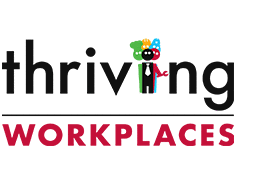
11 Dec Step Change in Mental Health and Workforce Resilience
I believe that unless many companies fix their workplace culture, their efforts to improve employee health, will be significantly hindered.
Let me give you an example.
A fast-growing company that sells digital solutions has been the ‘labour of love’ of a successful former sales director. In fact, the company is so successful it has expanded from a team of 10 to a sizable outfit of 200 employees.
There is no doubt the owner knows how to get results and is successful in most senses of the word.
However, he has noticed that many of his young sales team are showing signs of mental health problems and their vulnerability is starting to hit performance, with key staff off sick, or unable to close deals confidently.
This is a large outfit now, with a large payroll, so as performance is threatened, the owner becomes understandably agitated and falls back on what he knows and trusts, becoming command and control and motivating people using targets and commission. Even though he’s a reasonable guy, he becomes particularly animated when sales targets loom, though like most managers, he is unaware of the impact his behaviour is having on those around him and under him.
As Harvard Business professor, Chris Argyris observed, what we espouse and what we do are often two different things. Watch how managers behave in any company if a key target, or the company’s reputation, is threatened. They often revert to command and control and can be very stressful to work for. This is a very common problem and when I was a senior manager, I was as guilty as any.
This behaviour is persistent and widespread because it often leads to short term success, and thus is repeated and becomes a cycle. Equally, however, longer-term performance problems persist and often deepen.
This cycle can add up to the company zeitgeist, or culture, and often has a significant impact on the mental wellbeing of the employees working within it. This is because there is a strong relationship between management thinking, management behaviour and performance outcomes.

When companies wake up to the mental health and wellbeing issues in their company, a common response is to adopt employee health and wellbeing as a priority and try to mitigate against the affects of it. Typically, they put on events such as health days, train managers in subjects such as mental health first aid, or often encourage exercise and fun by buying equipment like table tennis tables, or table football.
These measures are important and I urge companies to adopt them. However, on their own, they have little effect!
Firstly, if you adopt employee health and wellbeing as a priority, you need to develop a coherent strategy, or plan, to back it up. That way you will understand the issues in your organisation and stand more chance of sustaining success over a long period.
Secondly. as outlined above, unless organisations take steps to change their culture and learn a new management approach, then health improvements will be significantly impaired.
Each company is different and I cannot pass on a magic formula for any company because they are the experts in their particular field. The answer then is for companies to adopt a learning approach to changing culture and find their own way. One that captures their unique expertise, but also encourages a more positive, supportive culture. The first step is for them to admit to themselves they may have a problem.
We can help you explore whether you have a culture problem using our digital culture analysis tool and also help you develop a wellbeing strategy.
If you want to find out more then please contact me.


